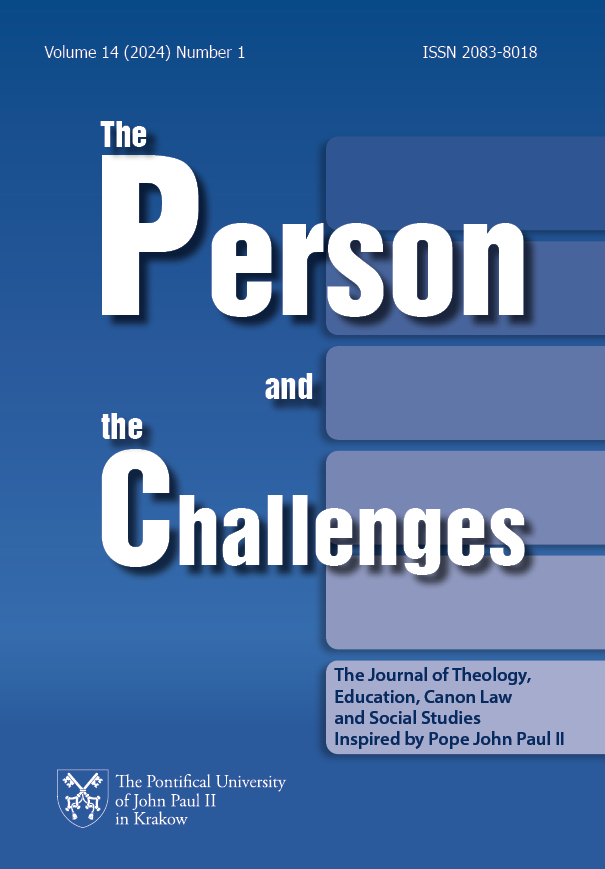The Analysis of Ukrainian Policy in the Field of State-Religious Education: Secondary School
DOI:
https://doi.org/10.15633/pch.14107Słowa kluczowe:
education, religious education, subjects of religious and moral orientation, religious organizations, normative-legal base, state-confessional relationsAbstrakt
The article provides an overview of approaches to the organization of religious education in secondary schools of Ukraine during the period of its independence, which complements the European experience of studying this issue. Attention is paid both to the historical circumstances of the beginning of school religious education in the interaction of religious, state and educational institutions, and to modern issues related to the policy of introducing subjects of religious and moral orientation in Ukrainian schools. The current legislation in the field of religious education in a secular school, the real practice of its implementation, and the challenges that give an idea of the specifics of Ukraine in this matter in the European space, are analyzed. The legislative work of Ukraine on resolving the issue of legal regulation of the possibility of establishing educational institutions of different levels of accreditation by religious organizations is generalized. Statistical data on the state of teaching religious and moral subjects in schools of Ukraine are analyzed. Prospects and possibilities of further teaching of religious education in the Ukrainian public school are considered.
Bibliografia
Cauda R,; Ondrušová Z, Tománek P, Hardy M, We shall start health intervention against collateral Effect of Pandemic to metabolic, cardiovascular and mental health in migrants, children and caregivers, “Clinical Social Work and Health Intervention“ 12 Nr 3 (2021), pp. 6–8.
Bundzelová K, Ludvigh Cintulová L, Buzalová S, Sociálna práca s osobami vyššieho veku, Bratislava 2023: Vysoká škola zdravotníctva a sociálnej práce sv. Alžbety v Bratislave, p 119.
Bunakova I.V., Ethical and religious education as a basis for the formation of spiritual and moral values, “Philosophy and Political Science in the context of modern culture”, Dnepropetrovsk, 2 (2011), pp. 59–64.
Conceptual bases of studying subjects of spiritual and moral orientation in general educational institutions (courses “Ethics”, “Bases of Christian ethics”, “Bases of religious ethics”) / Collection of normative-legal acts of introduction of subjects of spiritual and moral orientation in the system of education of Ukraine, Kyiv, 2006, Publishing house of Kyiv Pedagogical University named by B.D. Grinchenko, p. 48.
Černek, M (eds), Distance learning at universities in central and eastern Europe during the covid-19 pandemic: a pilot comparative study, “Acta Missiologica“ 17 Nr 1 (2023), pp. 166–182.
Jackson R., Miedema S., Weisse W., & Willaime J.-P. (Eds.), Religion and education in Europe: Developments, contexts and debates, Münster 2007, Waxmann VerlagGmbH. https://www.researchgate.net/publication/282671898_Religion_and_Education_in_Europe_Developments_Contexts_and_Debates (05.06.2022).
Jarmoch, Edward Zygmunt (eds), Social Work and Socio-Pathological Phenomena in the School Environment, “Acta Missiologica“ 16 Nr 2, (2022), pp. 130–145.
Kalnysh Y., Theological schools in Ukraine: a general overview, “Human and World” (2001), pp. 32–37.
Kondrla P, Trstensky F, Datelinka A, Social teaching of the church and the values of a sustainable society “Acta Missiologica“ 17 Nr 2 (2023), pp. 143–153.
Kuyk E., Jensen R., Lankshear D., Religious Education in Europe: Situations and Current Trends in Schools, Oslo, Norway, 2007, IKO Publishing House.
Lagodych M., Problems of teaching Christian ethics in secondary schools, “Scientific Bulletin of Chernivtsi University”, Chernivtsi 2003, Ruta, 163–164, pp. 75–78.
Ludvigh Cintulová L, Budayová Z, Juhásová I, Health of Roma People living in marginalized Communities in Slovakia, “Clinical Social Work and Health Intervention” 14 Nr. 1 (2023), pp. 7–15.
Ludvigh Cintulová L, Beňo P, Pavlovičová T, Aspects of social services and wellbeing in postcovid era, “Int J Health New Tech Soc Work“ 18 Nr 3 (2023), pp. 106–114.
Ludvigh Cintulová L, Tománek P, The view of today’s youth of an ideal teacher in primary education, “Przegląd Nauk Stosowanych Gliwice“: Gliwicka Wyższa Szkoła Przedsiębiorczości 22 Nr 1 (2020), pp. 31–36
Mulyarchuk E., The problem of social implementation of religious morality, “Philosophical thought” 1 (2006), pp. 110–130.
Radková L, Ludvigh Cintulová L, Brédová S, Budayová Z, Analysis of mental wellbeing of volunteers at the border crossing Vyšné Nemecké due to war conflict in Ukraine, “Acta Missiologica“ 16 Nr 2 (2022), pp 169–175.
Religion. Statistical materials, in: State Service of Ukraine for Ethnopolitics and Freedom of Conscience, https://dess.gov.ua/statistics-rel/ (20.01.2023).
Samoilenko O.A., Religious education and upbringing in the system of secular education: the problem of interaction, “Ukrainian Polonistics” 6 (2009), pp. 71–77.
The Church in Ukrainian society, V.P. Perebenesyuk (ed.), Materials of sociological research, Кyiv 2004, ViP.
Willaime J.-P., Europe et religions. Les enjeux du XXIe siècle, Paris 2004, Fayard, Les dieux dans la cite.
Yelensky V., Religious education and upbringing in the laws and educational systems of Western European countries, “Man and the World” (2001), pp. 32–36.
Pobrania
Opublikowane
Numer
Dział
Licencja

Utwór dostępny jest na licencji Creative Commons Uznanie autorstwa 4.0 Międzynarodowe.
Autorzy publikujący w czasopiśmie udzielają jego wydawcy zgody o następującej treści:
- Autor zachowuje autorskie prawa majątkowe do utworu, a jednocześnie udziela wydawcy czasopisma zgody na jego pierwszą publikację w wersji drukowanej i wersji online na licencji Creative Commons Uznanie autorstwa 4.0 Międzynarodowe oraz zgody na wykonywanie opracowań, w tym przekładów.
- Autor ma możliwość udzielania zgody niewyłącznej na opublikowanie utworu w wersji, która ukazała się w czasopiśmie (np. zamieszczenia go w repozytorium instytucjonalnym lub opublikowania w książce), wraz z informacją o jego pierwszej publikacji w czasopiśmie.
- Autor może umieścić swój utwór online (np. w repozytorium instytucjonalnym lub na swojej stronie internetowej) jeszcze przed zgłoszeniem utworu do czasopisma.

